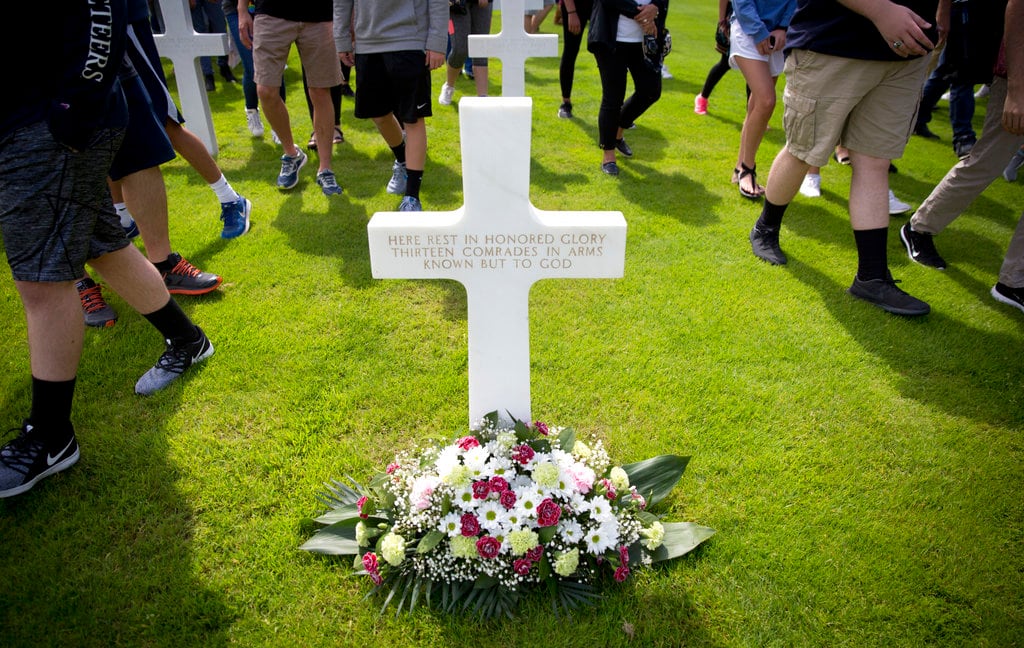Advocacy groups still have hope that Congress can fix a longstanding problem with survivor payouts to some military families, despite the fact that it rejected even while this week rejecting the newest proposal circulating on Capitol Hill as "no solution at all." earlier this week.
On Wednesday, members of The Military Coalition, an umbrella group of defense and veterans advocacy groups, lobbied members of the House Armed Services Committee to end the offset in the Defense Department's Survivor Benefit Plan payouts and the U.S. Department of Veterans Affairs' Veterans Affairs Department's Dependency and Indemnity Compensation program.
It's the latest round in a nearly three-decade fight by the groups over what they see as a fundamental unfairness in the two programs designed to help survivors of deceased veterans who thought their families would not face financial woes.
"Our widows are already suffering," said Chris Kinnard, co-chair of the Government Relations Committee for Gold Star Wives of America. "We need to have the offset repealed or adjusted."
Survivors of veterans or troops who die of service-related causes are eligible to receive DIC payouts of around $15,000 a year, designed to help cover the costs related to an unexpected loss.
Families of military retirees who enroll in the SBP can receive up to 55 percent of their loved ones' retirement pay upon their death. The life insurance-type payouts are subsidized by DoD, but require enrollees to pay-in 6.5 percent of their retirement benefit.
But under federal rules, when a deceased veteran (or active-duty service member, in certain cases) qualifies for both programs, for every dollar paid out in DIC, payouts under SBP are reduced by one dollar. The result: A loss of up to $15,000 for families already dealing with the loss of a spouse or parent.
"This offset exists to save the government money, which is perhaps the ultimate insult our government can inflict on surviving spouses," said Joe Davis, spokesman for the Veterans of Foreign Wars. "The two payments are mutually exclusive and paid for two different reasons by two different departments."
But eliminating the offset has proved remarkably difficult. The issue affects roughly 63,000 military families, and scrapping the offset completely would create a deficit of over $1 billion-plus deficit for the federal government.
Lawmakers in both parties have for years floated possible solutions, but only minor corrections have been adopted thus far.
Earlier this year, officials from the Military Compensation and Retirement Modernization Commission recommended creating new SBP offerings that would get around the offset — by charging higher premiums to retirees.
Lawmakers have been reviewing the idea, but advocates have come out swinging against it.
"To us, that is no solution at all," said Steve Strobridge, director of government relations for the Military Officers Association of America. "It puts the member in the position of having to guess if they'll die of a service-connected cause."
Instead, advocates are still hopeful that a full repeal can be put in place.
Kinnard said that some military families have found workarounds for the offset, including transferring family assets to minor children and other complicated tax maneuvers.
None of them should be necessary, she argued.
"Why are they taking our widows' money away?" she said. "It's wrong, it's just wrong."
Leo covers Congress, Veterans Affairs and the White House for Military Times. He has covered Washington, D.C. since 2004, focusing on military personnel and veterans policies. His work has earned numerous honors, including a 2009 Polk award, a 2010 National Headliner Award, the IAVA Leadership in Journalism award and the VFW News Media award.





